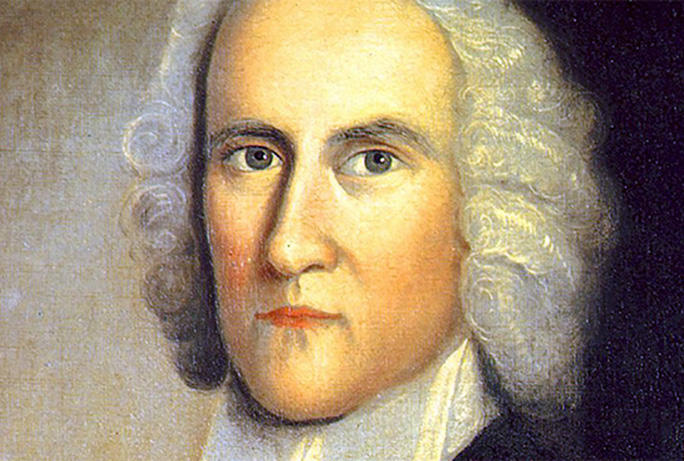Featured Research: The Jonathan Edwards Centre, UK

The Jonathan-Edwards Centre, UK, was founded in 2017 to study the life and thought of Reverend Jonathan Edwards, the 18th-century Colonial philosopher, theologian, and church minister. Edwards, who was born in 1703, pastored two congregations in New England before dying at the relatively early age of 54 as President of Princeton College (now University) in New Jersey. Edwards’s many and varied writings have been collected in 73 volumes. He wrote sermons, theological and ecclesiastical works, a biography, a history of the revival in which he was involved, a remarkable illustrated piece on spiders when he was a teenager, and a philosophical treatise on the freedom of the will.
It is on this last that his philosophical claim chiefly rests: the book represents a sustained assault on the libertarian theory of the will, and a defence of the ‘Calvinistic’ theory that the choices made by the will are determined by God. Edwards also wrote in a philosophical manner about ethics, the doctrine of original sin, and the reason why the world exists. His descendants have been equally distinguished: the Edwards family produced a Vice-President of the United States, as well as ‘scores of clergymen, thirteen presidents of higher learning, sixty-five professors, and many other persons of notable achievements’, we are told.
The Centre has two sites, the Department of Philosophy at Liverpool, and the School of History at Queen’s University, Belfast. The two Directors are Dr Daniel Hill of Liverpool, and Prof. Crawford Gribben of Belfast. The Deputy Director is Dr Simon Marsden of the Department of English at Liverpool. The Centre is an affiliated centre of the Jonathan Edwards Center at Yale University. The UK Centre maintains a reciprocal exchange agreement for staff and PGR students to study the life and thought of Edwards at Yale. The Centre sponsors an annual lecture, and also holds a reading group every year to study some of Edwards’s writings. Anyone interested in knowing more about the work of the Centre is encouraged to contact Dr Hill.